- Home
- Keith Douglass
Arctic Fire c-9
Arctic Fire c-9 Read online
Arctic Fire
( Carrier - 9 )
Keith Douglass
The Cold War may be over, but in the Bering Sea, its far from quiet on America’s Western front. A Russian splinter group has captured the Aleutian Islands off the coast of Alaska. Rear Admiral “Tombstone” Magruder and Carrier Battle Group Fourteen are sent to the Aleutians on the mission they prayed would never come: repel invaders from American soil.
Keith Douglass
Arctic Fire
CHAPTER 1
Sunday, 25 December
1600 Local
Kilo 31
South of Aflu Island, Aleutians
Russian Colonel Kamir Rogov braced himself against the icy side of the Kilo diesel submarine’s conning tower. Five hundred meters away, the snow and ice-covered island loomed forbiddingly. Forty-knot winds kicked up loose snow, at times reducing visibility to less than the distance of the island.
Even as he felt the cold cut through the wool scarf wrapped around his face, he welcomed the chance to escape the cold, dark confines of the submarine. After three weeks underway, submerged most of the time, the stench of cooking, diesel fuel, and too many humans packed in too small a space had grown almost unbearable.
“Almost ready, Comrade Colonel,” the submarine’s skipper said.
Rogov acknowledged the report with a sharp nod of his head and glanced down at the yellow inflatable raft slamming into the submarine’s side. The weather was barely within minimum standards for attempting to launch the raft from the submarine, but there was no help for that. Nothing could be permitted to delay this mission — nothing.
A young sailor poked his head out from the small igloo-shaped craft, which had a superstructure of domed plastic to provide some protection from the wind. The sailor looked pale and queasy after only five minutes inside the bobbing boat. He waved to attract his captain’s attention, then nodded, making a thumbs-up gesture. The captain turned back to Rogov. “Now, sir?”
“Da.” Rogov turned and looked down the open hatchway behind him. He made a come-along motion with his hand. The Spetsnaz commander smiled up at him, an unholy look of glee under the circumstances, and started up the ladder. The four other Russian Special Forces soldiers were crowded around the base of the ladder, chivying for their turn to escape the metal hull.
Russian Spetsnaz, trained and groomed for offensive operations anywhere in the world. This cadre was a select group, each member chosen not only for his technical skills and aggressiveness, but because of one other important characteristic — his Cossack blood.
Did the Russians even suspect? Rogov wondered. No, they couldn’t — wouldn’t. It would not occur to them that there could be loyalties stronger than to Mother Russia at work within the military, especially not in the prestigious Spetsnaz ranks. But the Cossacks had preserved their ancient warrior ways, remembering their heritage from Ukraine and gentler climates even during the centuries of their forced resettlement to frigid Mongolia. While their Russian masters grudgingly treasured those racial characteristics that had earned the Cossacks their fearsome reputation for savagery, filling the ranks of their hardened shock troops with Members of the tribe, they never fully accepted the COSSaCks. Nor returned the land stolen from them so long ago.
No matter, Rogov decided. If this mission succeeded there would be no turning back. The Cossacks would earn — take by force, if necessary — their rightful place as masters of their continent.
Clad in heavy parkas and winter gear, carrying bulky packs on their backs, the Spetsnaz Cossacks barely made it through the narrow hatch. The conning tower was crowded now, and reeked of the submarine’s stench.
“Your men are ready?” Rogov asked.
The Spetsnaz commander took in a deep breath of the fresh air, his smile deepening. “Spetsnaz is always ready, COmrade.” He looked out at the distant island, then down at the bobbing raft. “A challenge — our specialty.”
“Then no more delays. Let’s get underway.”
The submarine captain motioned to the young sailor. The man clambered out carefully, reaching for the steel-runged ladder attached to the side of the submarine. As his one hand closed over the first ice-covered rung, a wave slammed into the submarine, rolling it away from the man.
With his balance already committed to the move, he didn’t have a chance, He teetered for a second on the edge of the raft, leaned forward, and almost caught himself on the rope that ran through on steel loops outside of the raft. His hand closed on it briefly.
The submarine captain slapped the man standing next to him on the back and shouted to be heard over the rising wind. The lookout nodded and started down the ladder to assist his shipmate.
Before he’d moved down two rungs, hypothermia claimed the other sailor’s consciousness. His hand clenched on the ice-coated rope, then relaxed. A wave washed over his head, and the suction from the submarine’s seawater intake valves pulled him away from the raft.
The lookout stopped two rungs down and looked back up to his captain, stricken. The captain motioned him to return to the conning tower. Trying to retrieve the dead sailor’s body would be an impossible task in the freezing waters of the North Pacific.
Rogov turned to the Spetsnaz commander, “A reminder.”
“We know our job.” The Spetsnaz reached for the first steel rung and pulled himself over the side of the submarine. He paused, his head just above the level of the conning tower. “Be careful, Comrade Colonel. There are things here more dangerous than the ocean.”
Rogov grunted. “Such as!”
“Me.” The Spetsnaz commander took one hand off the ladder to motion to his companions. “And them.”
Rogov impaled him with a look colder than the frigid air swirling about them. “There are some things more powerful than muscle and bone,” he said softly. “You would be wise not to forget that.”
The Spetsnaz commander shrugged, then started down the ladder. As he entered the small raft, he looked back up at Rogov, “But where we’re going, Comrade Colonel,” he continued, pointing at the barren island behind him, “I think you’ll find that that’s what matters.”
Tomcat 201
15,000 feet South of Aflu Island, Aleutians
Lieutenant Curt “Bird Dog” Robinson scowled at the ocean, the sky, and the clear hard plastic aircraft canopy Overhead. From this altitude, he should have been able to see a fair stretch of the Aleutians stretched out beneath him. The island chain, formed from volcanic activity eons ago as the tectonic plates of the earth shifted in their Slow Orbits, jutted up from the Pacific ocean, Stretching from the southwestern tip of Alaska to the eastern edge of Russia. Earlier today, during a rare moment when the weather had cleared, he’d been able to see most of the United States’ westernmost territory.
But not now. He felt the aircraft rock under his butt, and compensated for the turbulence automatically. The F-14 Tomcat responded smoothly to his touch, the low growl of its engines almost a satisfied purr. Despite his foul mood, Bird Dog smiled with the sheer pleasure of feeling 61,000 pounds of aircraft respond like an extension of his own body. The marriage between a fighter pilot and his aircraft was the closest thing to heaven he’d ever experienced with his clothes on. And, he had to admit, it lasted a lot longer than most anything else that came close. At least in a Tomcat you could always refuel and stay airborne.
Not that he was all that certain he wanted to right now. Fifteen minutes earlier, one of the infamous williwaws had blown in. The wild northern storms, born of the interaction between the relatively warm Japanese current and the frigid arctic waters it flowed into, generated fearsome brutal winds capable of reaching a hundred knots in minutes. The battle between the two masses of water also generated the thick, impenetrable fog
already curling up the sides of the rocky islands. Now, only the highest cliffs peeked out of the white blankness below him.
The lousy weather wasn’t the only reason for his foul mood. Even if he did prefer flying to almost anything else, there were some limits to his obsession. “Damn, Gator, why the hell did we get stuck pulling Alert Five on Christmas Day?” Bird Dog asked for the third time.
“You ought to be out here, shipmate,” Lieutenant Commander Charlie “Gator” Cummings said wearily from the backseat. “Me — I’m senior to most of the other NFOs in the squadron. If I weren’t stuck with such a junior pilot for a partner, I’d still be in my rack sleeping off that huge meal last night.”
“Yeah, yeah, yeah, that line’s getting real old,” Bird Dog snapped. “You think it’s fun being a lieutenant?”
“You think it’s fun flying with one?”
Bird Dog sighed. There was no way he could win this argument. Gator was right — the junior members of the squadron did pull the worst duty on the ship.
“Whales,” he said out loud. “I joined the Navy to fly against MiGs, not to stand by to buzz Greenpeace boats.”
“Would have thought you’d gotten enough of that on our last cruise.”
“That was something, wasn’t it?” Bird Dog said reflectively. “MiG-29s, F-11 Chinese fighters — hell, that’s the most fun I’ve ever had with my clothes on.”
And it had been. On their last cruise, his first deployment on board a carrier as a full-fledged naval aviator, the USS Jefferson had intervened in a nasty eastern Asian squabble over oil rights to the Spratly Islands. The North Koreans and the Chinese had teamed up to conduct an impressive exercise in operational deception. The Chinese had attacked and destroyed several of their own base camps perched on the tiny rocks and shoals that made up the Spratly Islands, hoping to convince the rest of the Pacific Rim nations that the United States was behind the aggression. Fortunately, Rear Admiral Matthew Magruder, “Tombstone” to his fellow aviators, had figured it out, and managed to put together a coalition of fighter squadrons from the other nations to expose and repel the Chinese marauders.
“Bet Tombstone is freezing his ass off right about now, too,” Bird Dog said. “ALASKCOM — colder’n hell up there, too, isn’t it?”
“I’ve got a radar paint on the Greenpeace boats,” Gator announced. “Should be about fifty miles ahead of US.”
“Well, let’s go give them their daily taste Of naval aviation. Probably the most fun they have while they’re out here in this godforsaken ocean.”
Bird Dog yanked the F-14 into a sharp turn.
“Hey, was that really necessary?” Gator asked sharply, grunting as he Performed the M-1 maneuver, designed to force blood into the extremities of an aviator during high-G operations. The sudden turn had caught him by surprise, and his vision had started to gray out at the edges.
“Sorry. Just trying to remind you what it’s like to be tactical.”
“Yeah, well, we’re sure as hell not going to need it against a Greenpeace boat.”
“That’s what we thought about that tank in the Spratlys, isn’t it?” Bird Dog reminded him. “Remember? That damned old Soviet tank, sitting all by itself out on that rock in the middle of the ocean. And those poor guys — whenever I think I have it rough on the carrier, I remember those two guys sittin’ on top of the tank, about six feet above the waves.”
“I remember the Stinger missiles,” Gator responded. “Though it took me a while to convince you that you ought to be thinking about them, too.”
“I’ve got a visual on them. Let’s slow down a little, mark on top for a few minutes and take some pictures.”
“‘Kay. I’m ready,” Gator said.
Bird Dog took manual control of the mechanism controlling the sweep-back wings on his aircraft. Normally, he would allow the computer to select the appropriate position — swept back along the fuselage for power and speed, or extended to provide maximum lift for getting airborne. The awkward configuration of the extended wing structure was what gave the Tomcat its affectionate nickname of “Turkey.”
“Two hundred knots — that’s about as slow as I want to go,” Bird Dog said. “Stall speed is only a hundred and forty knots at this weight.”
“You sure as hell better keep us airborne, shipmate, because that water ain’t that inviting. Survival time is about fifteen seconds.”
Bird Dog put the Tomcat into a gentle arc, two hundred feet above the ship ahead of them. “Now, don’t you go worryin’, Gator. I got you back last time, didn’t I?”
Gator muttered something incomprehensible under his breath.
“Besides, there’s no way those Greenpeace boats are carrying Stingers,” Bird Dog continued. “I mean, what the hell — what would that do for their image as peaceful ecologists?”
“They care about endangered bobcats, not Tomcats.”
Bird Dog sighed. “Let’s just take the pictures and get out of here. I want to do a few barrel rolls and some acrobatics on the way back to the ship.”
“Just stay away from that damned cruiser this time, okay? I put up with that all last cruise, and I’m not going to do that again. Gets old, standing tall in front of CAG and explaining why I let the junior lieutenant driving my bird pretend to be an incoming missile for an Aegis cruiser.”
“Sure got their attention, though, didn’t it?” Bird Dog chuckled. “You RIOs have no idea of how to have fun.”
Bird Dog put the Tomcat into a lazy port turn, increasing the angle of bank so he could get a good look at the ship below them. The convened fishing trawler was skirting the edge of the fog bank, plowing heavily through the rough seas. While the churning yaw and pitch looked damned dangerous, the SS Serenity’s deep draft let her bite through confused swells that would have capsized a much larger vessel.
The boat looked well-maintained and neat, from what he could see. There was no debris littering the deck, where lines and rope lay neatly coiled. A thin coating of ice over the superstructure and weather decks reflected the sun, occasionally generating a bright, painful flash of light. Its hull was green, its railing and fixtures painted white. A rainbow graced the starboard bow. From one mast a Greenpeace ecological flag flapped briskly in the wind. No one was visible on deck — not surprising, considering the weather. Bird Dog dropped the aircraft down to 150 feet and peered at the glass-enclosed bridge. He thought he could pick out two figures moving inside.
“You finished?” he asked Gator.
“One more shot. There, I’ve got it. Let’s head for home.”
“Your wish is my command,” Bird Dog answered. He let the Tomcat roll around the final arc of the circle, then broke off the turn to vector back toward the aircraft carrier, now out of sight. “I’ll let Mother know we’re headed home.” He keyed the tactical circuit. “Homeplate, this is Tomcat Two-oh-one, inbound.”
“Roger, Tomcat Two-oh-one. Say state?” the operations specialist, or OS, on the other end asked.
Bird Dog glanced down at the fuel gauge. “We’re fine, homeplate. Six thousand pounds.”
“Roger, Two-oh-one. Tanker airborne in ten mikes,” the operator replied. “I hold you on radar now.”
Bird Dog switched off the tactical circuit and keyed the ICS, the interior communications switch. “Nice to know they have such confidence in my ability to get back on board,” he said to Gator.
“Don’t take it personal,” the RIO replied. “The last thing we want to happen is to get low on gas out here. Not much place to bingo.”
“Yeah, but I’ve got plenty of fuel for two passes at the boat. What, they don’t think my track record’s so hot?”
He heard his RIO sigh. “They’ve launched a tanker for every returning flight in the last two days, asshole. If you think you’re such hot shit, maybe I’d better find me another pilot. Nothing kills air crews faster than over-confidence.”
“Well, when was the last time I did anything except get on board first time and catch the three-wire?” Bird Dog
argued. “I’m just saying, it’s a normal-“
“Wait, what’s that?” Gator said.
“What?”
“Radar contact — way down to the south, maybe a hundred miles. It wasn’t there before,” Gator said, a note of excitement coloring his usual professional monotone.
“Probably another fishing boat. What’s the big deal?”
“I’m telling you, it wasn’t there before. Now it’s solid. You know what that means.”
“A submarine? You’re calling a pop-up contact a submarine up here? Jesus, Gator, you sure as hell must be bored. What the hell would a submarine be doing surfaced out here?”
“That’s the whole point, Bird Dog. It shouldn’t be. Snorkeling, maybe, if it’s a diesel recharging its batteries, but no submariner in his right mind would surface out here. For what? To get a good look at an iceberg?”
Just then the voice of the operations specialist on the Jefferson came over the circuit. “Tomcat Two-oh-one, we’re holding your contact approximately two hundred to the east of us, one hundred miles from your position. Request you vector back to Jefferson, take on fuel, and investigate.”
Bird Dog sighed. No point in complaining that it was Christmas Day, that he really would prefer to be asleep in his rack instead of chasing sea ghosts, or that he was now desperately wishing he hadn’t had those two cups of coffee before they launched. He toggled the tactical switch. “Okay, okay, we’re on our way in.”
“Better than buzzing Greenpeace, isn’t it?” Gator asked.
“Would be if I didn’t have to pee so bad. But as cold as it is out there, I’m afraid I’m gonna get stuck in a real embarrassing, personal sort of way if I use the relief tube.”
Gator laughed. “Come on, Bird Dog, those are just old sea stories. It’s not like touching your tongue to an ice cube tray.”
“Yeah, well, you try it with yours first,” Bird Dog snapped. He gazed down at the relief tube, conveniently mounted and accessible to the pilot. While most of the time he appreciated the convenience, since he despised the piddle-packs the Hornet drivers had to use, he was damned uncomfortable at the thought now. Holding the Tomcat in level flight with one hand, he stripped off a glove and touched the relief tube. It was icy cold, just as he’d feared.

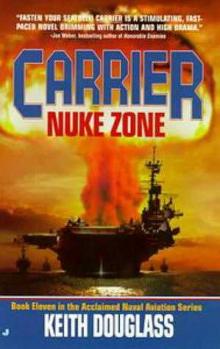 Nuke Zone c-11
Nuke Zone c-11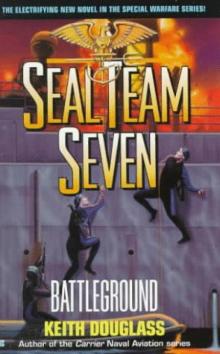 Seal Team Seven 6 - Battleground
Seal Team Seven 6 - Battleground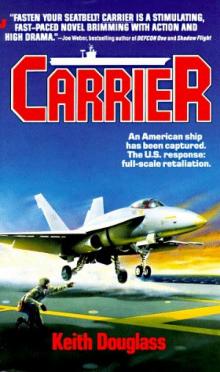 Carrier c-1
Carrier c-1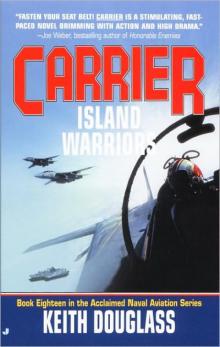 Island Warriors c-18
Island Warriors c-18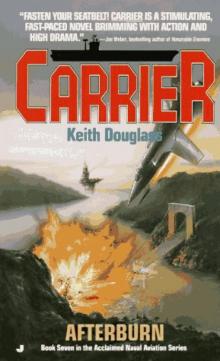 Afterburn c-7
Afterburn c-7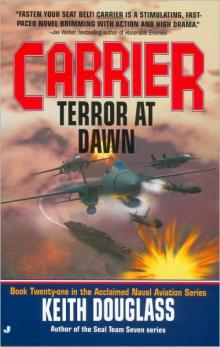 Terror At Dawn c-21
Terror At Dawn c-21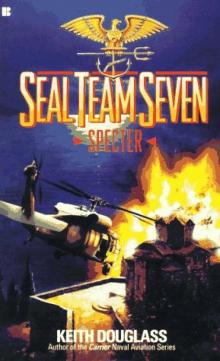 Specter sts-2
Specter sts-2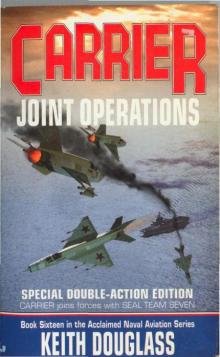 Joint Operations c-16
Joint Operations c-16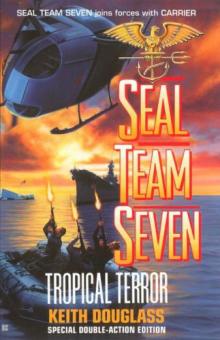 Tropical Terror sts-12
Tropical Terror sts-12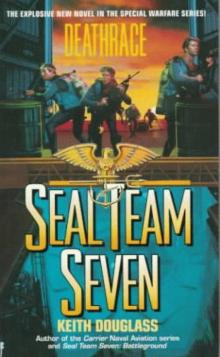 Seal Team Seven 7 - Deathrace
Seal Team Seven 7 - Deathrace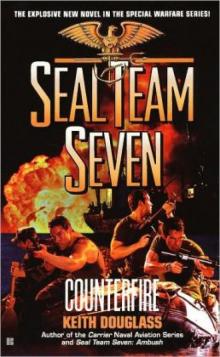 Counterfire sts-16
Counterfire sts-16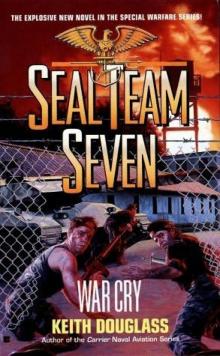 War Cry sts-9
War Cry sts-9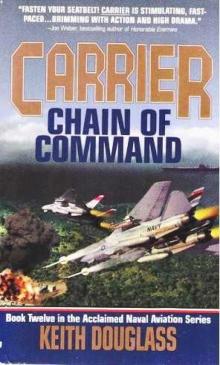 Chain of Command c-12
Chain of Command c-12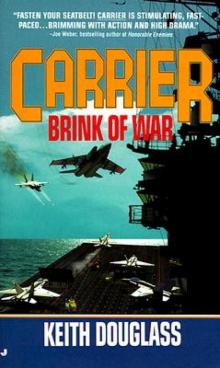 Brink of War c-13
Brink of War c-13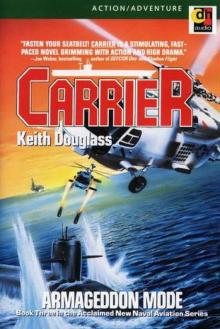 Armageddon Mode c-3
Armageddon Mode c-3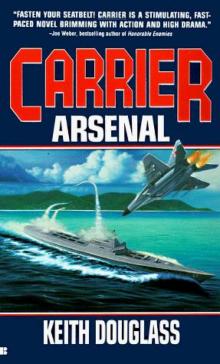 Arsenal c-10
Arsenal c-10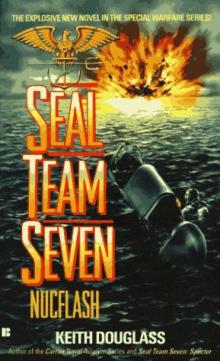 Nucflash sts-3
Nucflash sts-3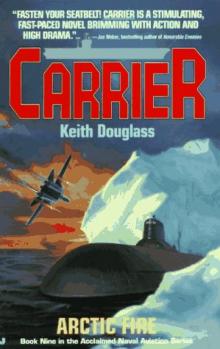 Arctic Fire c-9
Arctic Fire c-9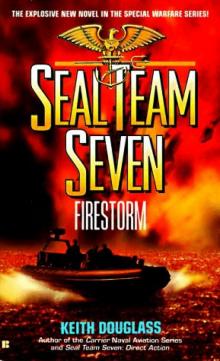 Firestorm sts-5
Firestorm sts-5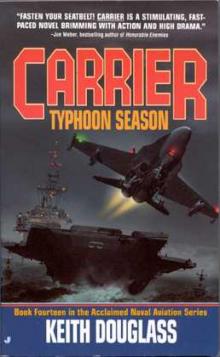 Typhoon Season c-14
Typhoon Season c-14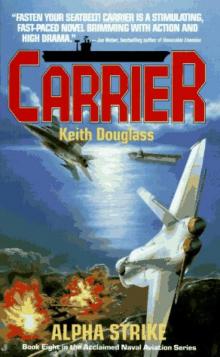 Alpha Strike c-8
Alpha Strike c-8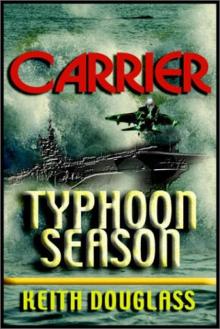 Carrier 14 - TYPHOON SEASON
Carrier 14 - TYPHOON SEASON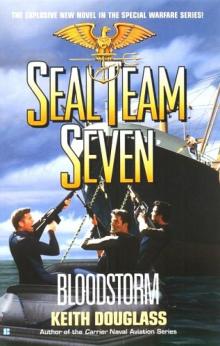 Bloodstorm sts-13
Bloodstorm sts-13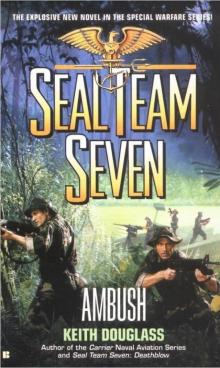 Ambush sts-15
Ambush sts-15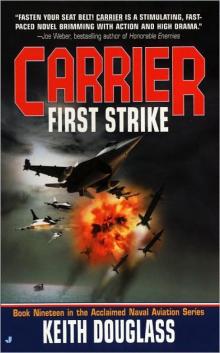 First Strike c-19
First Strike c-19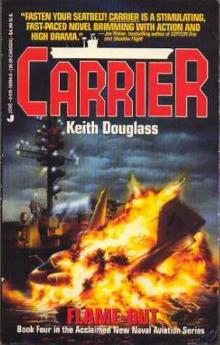 Flame Out c-4
Flame Out c-4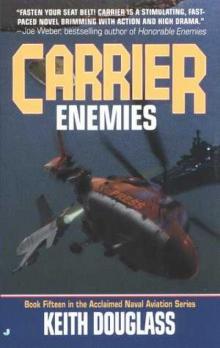 Enemies c-15
Enemies c-15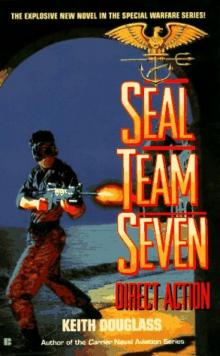 Seal Team Seven 04 - Direct Action
Seal Team Seven 04 - Direct Action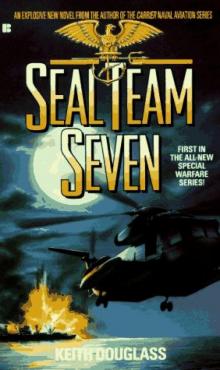 Seal Team Seven 01 - Seal Team Seven
Seal Team Seven 01 - Seal Team Seven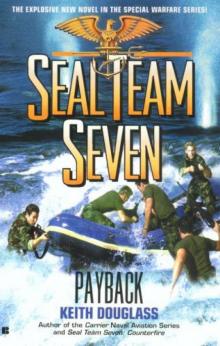 Payback sts-17
Payback sts-17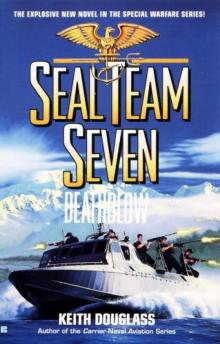 Death Blow sts-14
Death Blow sts-14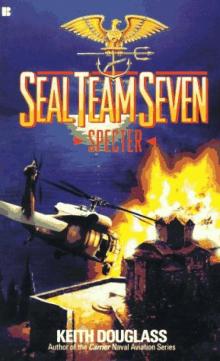 Seal Team Seven 02 - Spector
Seal Team Seven 02 - Spector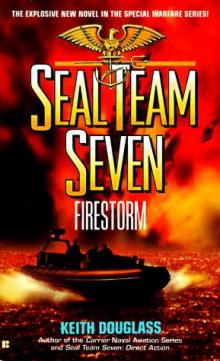 Seal Team Seven 5 - Firestorm
Seal Team Seven 5 - Firestorm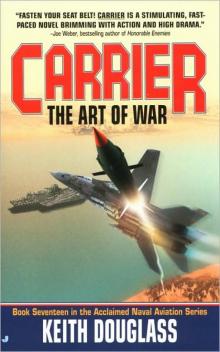 The Art of War c-17
The Art of War c-17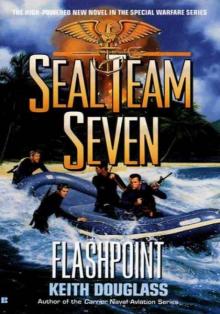 Flashpoint sts-11
Flashpoint sts-11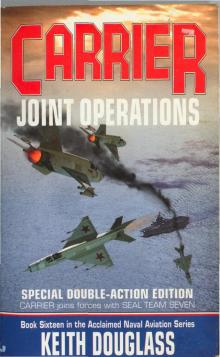 Carrier - Joint Operation Book 16
Carrier - Joint Operation Book 16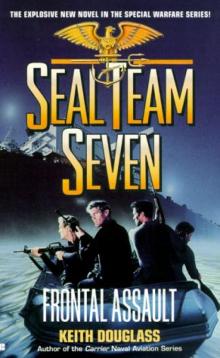 Frontal Assault sts-10
Frontal Assault sts-10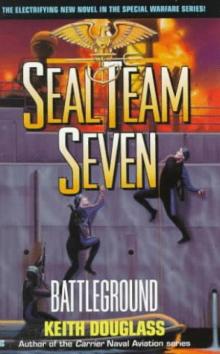 Battleground sts-6
Battleground sts-6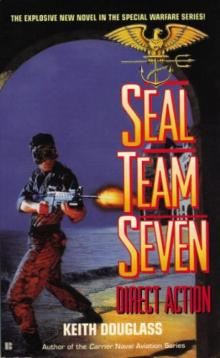 Direct Action sts-4
Direct Action sts-4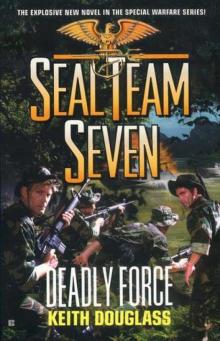 Deadly Force sts-18
Deadly Force sts-18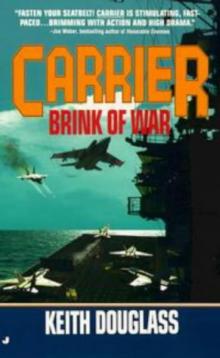 Carrier 13 - Brink of War
Carrier 13 - Brink of War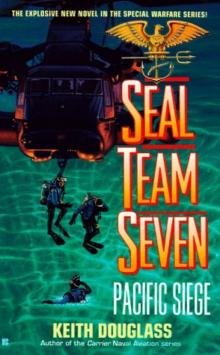 Pacific Siege sts-8
Pacific Siege sts-8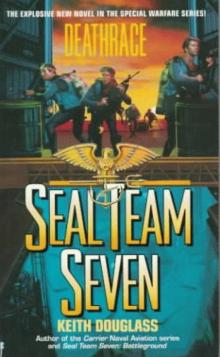 Deathrace sts-7
Deathrace sts-7